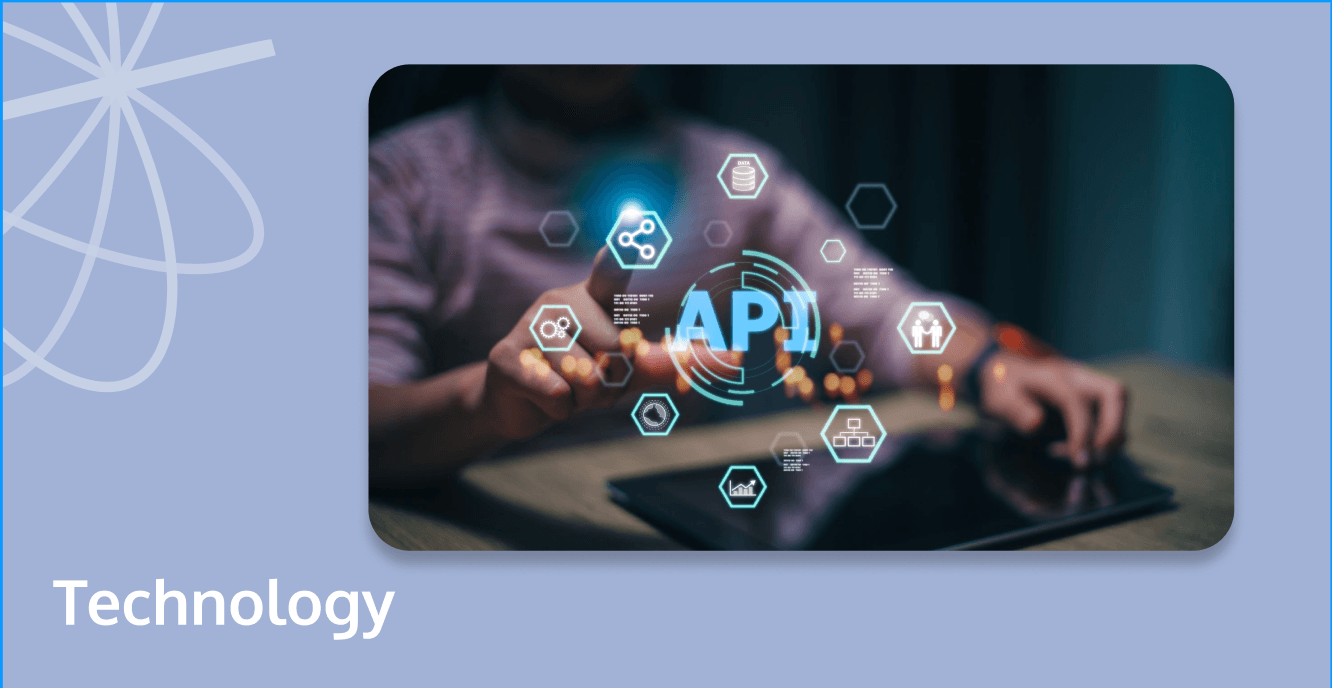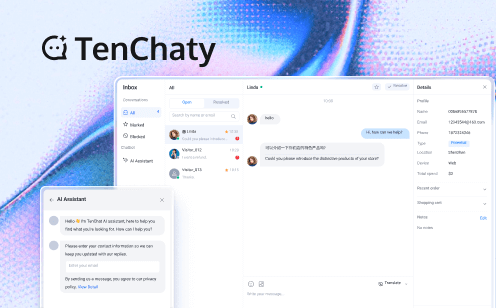
Businesses are constantly seeking ways to streamline operations and enhance efficiency. API integration emerges as a critical solution in this quest, offering a seamless way to connect and extend the functionalities of various software applications. But what exactly is API integration, and why is it becoming an indispensable tool of modern business strategies?
This guide delves into the fundamentals of API integration, its necessity, and how you can implement it to enhance your operational dynamics and competitive edge. We'll also explore the best practices to ensure successful integration and analyze the associated costs.

What Is API Integration?
API integration is a technological framework that allows two or more applications to interact with each other via their APIs (Application Programming Interfaces) to perform joint functions and share data in real time. An API is essentially a set of rules and protocols for building and interacting with software applications. It defines the methods and data formats that applications can use to communicate with each other over a network, without requiring user intervention.
At its core, API integration involves connecting an organization's disparate software tools and technologies, enabling them to automate tasks and enhance data sharing across various platforms. For example, an API might allow an e-commerce store's website to automatically update inventory levels from a back-end database, or enable a CRM system to fetch customer data from a marketing automation tool.
Why Will You Need API Integration?
In the digital age, where data is a critical asset and efficiency drives competitiveness, API integration is indispensable for any business looking to thrive. Here are several compelling reasons why your organization will benefit from integrating APIs:
- Enhanced Productivity: API integration automates the workflows between interconnected applications. By facilitating seamless data flow between systems, it reduces manual data entry, minimizes errors, and speeds up processes. This automation frees up your team to focus on more strategic tasks rather than mundane data management.
- Innovation and Competitive Advantage: API integration facilitates the exploration and adoption of new business models and strategies. It allows businesses to leverage third-party services through APIs, like payment gateways, AI-driven analytics, or advanced search capabilities, without extensive in-house development. This can significantly boost innovation, keeping companies competitive in their respective markets.
- Improved Customer Experience: Today's consumers expect fast, personalized service. API integration helps businesses deliver this by enabling real-time responses and personalized interactions. For example, integrating an e-commerce platform with a logistics provider's API can allow customers to receive instant updates about their orders and deliveries.
- Data Accessibility and Real-Time Insights: APIs allow real-time data exchange across different systems, ensuring that all your business areas have access to up-to-date information. This accessibility is crucial for making informed business decisions quickly, offering an accurate overview of business performance, customer behavior, and market trends.
- Scalability: As your business grows, so does the complexity of your operations. API integration helps scale your business operations efficiently by connecting new tools and technologies without disrupting existing workflows. This scalability ensures that you can adapt to market demands and growth opportunities without performance bottlenecks.
How to Implement API Integration in Your Business?
Successful implementation of API integration requires a systematic approach:
- Define Your Objectives: Before you start integrating APIs, clearly define what you want to achieve with the integration. Are you looking to improve data flow, enhance customer experience, automate operations, or expand functionality? Setting clear objectives will guide your integration strategy and help you measure its success.
- Assess Your IT Infrastructure: Evaluate your current IT setup to understand which systems need to be integrated and whether your existing infrastructure supports API integration. This step involves mapping out your data flows, understanding the capabilities of your current software, and identifying any gaps that need to be addressed.
- Choose the Right APIs: Not all APIs are created equal. Select APIs that are secure, reliable, and have the functionality that meets your needs. Consider factors such as the API's documentation, developer community, support provided by the API provider, and compliance with industry standards.
- Integration Testing: Before going live, thoroughly test the API integrations in a controlled environment. This helps identify any issues that could affect the performance or security of your integrations. Testing should cover all aspects of the integration, including data accuracy, system response times, and failure handling.
- Monitor and Optimize: After implementation, continuously monitor the performance of your API integrations. Use monitoring tools to track usage, response times, and errors. Feedback from these monitoring activities can help optimize the API's performance and troubleshoot issues before they affect your business operations.
Best Practices for Successful API Integration
Implementing API integration successfully requires more than just technical know-how; it involves strategic planning and adherence to best practices that ensure efficiency, security, and scalability. Here are some best practices:
- Thorough Planning and Documentation: Start by clearly documenting your API integration requirements and architecture. This should include details about data flows, system interactions, and any specific business rules that must be adhered to. Documentation is crucial not only for initial setup but also for ongoing maintenance and scaling.
- Use Industry Standards: Whenever possible, use standard protocols and data formats, such as REST, SOAP, or GraphQL for APIs, and JSON or XML for data exchange. Standardization promotes interoperability and can reduce the complexity of integration projects.
- Implement Robust Security Measures: Security is paramount in API integrations. Implement strong authentication and authorization practices, such as OAuth or API keys, to control access. Ensure that data is encrypted both in transit and at rest, and regularly update and audit APIs for security vulnerabilities.
- Focus on User Experience: Consider the end-user experience in your API integration design. Ensure that the integration does not negatively impact application performance and that it enhances functionality in a user-friendly way. This might involve optimizing API calls to minimize latency or designing user interfaces that seamlessly incorporate data from multiple systems.
- Monitor and Analyze API Performance: Regular monitoring of your API integrations is essential for detecting and resolving issues before they impact users. Use tools that provide real-time monitoring and logging to keep track of API performance, error rates, and usage patterns.
- Design for Scalability and Flexibility: Plan your API integrations with scalability in mind. Anticipate future business needs and ensure that the APIs you create or integrate can handle increased loads and can be easily modified to accommodate new requirements or technologies.
What Is the Cost of API Integration?
Determining the cost of API integration can be complex, as it varies widely based on the scope, complexity, and specific requirements of each project. However, understanding the various cost components involved can help you budget effectively and make informed decisions. Here are the key components:
- Development Labor Costs: Whether building an in-house development team or outsourcing to a professional service provider, development labor costs are often the largest expense in an API integration project.
Highly qualified developers, while costing more, are able to deliver higher quality solutions that may be more cost effective in the long run. For a standard API integration project, total fees can range from $5,000 to over $50,000 depending on the project's complexity and duration.
- Third-Party API Costs: Many APIs, especially those offered by major providers like Google, Amazon, or third-party services, come with usage fees. These costs can be based on the number of API calls made, the volume of data processed, or a flat monthly rate. Pricing models vary, so it's important to understand the cost structure of each API you plan to integrate.
- Infrastructure Costs: Depending on the volume of data and the number of API calls, additional infrastructure might be needed to support the integration. This could include upgraded servers, increased bandwidth, or specialized networking equipment. Cloud services may also incur additional costs based on data storage and transfer volumes.
- Maintenance and Support Costs: Once APIs are integrated, ongoing maintenance is required to ensure they continue to function correctly. This includes monitoring performance, updating APIs to remain compatible with external changes, and troubleshooting issues as they arise. Depending on the criticality of the API to business operations, support contracts with IT service providers or API vendors may also be necessary.
- Security Costs: Ensuring that API integrations are secure involves additional costs. This might include implementing advanced authentication protocols, encryption, and security testing. Compliance with data protection regulations such as GDPR or HIPAA may also entail further investment.
- Training Costs: Employees may need training to effectively utilize the new integrations. Costs here include training sessions, creation of training materials, and possibly the hiring of external trainers or consultants.
Conclusion
Navigating the complexities of API integration requires a strategic approach, but the benefits it brings to business operations are undeniable. From improving data connectivity and increasing automation to fostering innovation, the advantages of API integration justify the investment. As we've discussed, implementing API integration involves clear understanding, strategic planning, and adherence to best practices. While the costs can vary, the long-term gains in efficiency and scalability make it a worthwhile endeavor for businesses aiming to thrive in a digital-first world. So, embrace the power of connectivity, and let API integration be your gateway to a more integrated, efficient, and innovative future.
FAQs
What is the difference between public and private APIs?
The main difference between public and private APIs is their accessibility and purpose. Public APIs are open to the public, often with detailed public documentation, and are designed to facilitate the integration of third parties with an organization's systems. In contrast, private APIs are limited to internal use within an organization and are primarily used to improve internal system efficiency, often with higher security requirements.
What tools are recommended for API integration?
When it comes to API integration tools, there are many options on the market to suit users with different needs and skill levels. Zapier is a no-code automation tool for non-technical people that is easy to get started with. The AWS API Gateway is better suited for large-scale API deployment and management, especially in cloud environments. For applications requiring real-time audio and video communication functions, Tencent RTC provides professional API solutions.
If you have any questions or need assistance online, our support team is always ready to help. Please feel free to Contact us or join us on Telegram or Discord.


